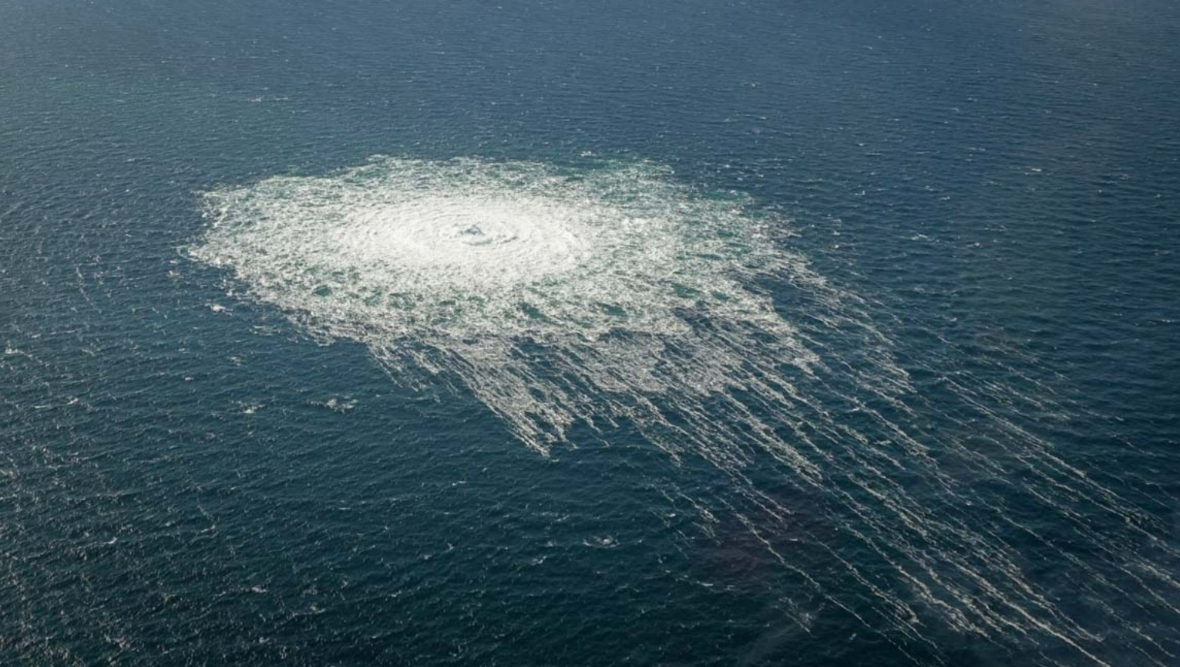Natural gas prices rose as evidence appeared to suggest a sabotage attack on two gas pipelines connecting Russia to Europe.
Initial reports of leaks off the coast of Denmark on Monday were confirmed by Danish authorities, who released dramatic footage of the gas bubbling up from underneath the sea.
There appear to be three big holes in the two pipelines – Nord Stream 1 and Nord Stream 2.
The holes are many miles apart. Swedish seismologists recorded what appear to be two loud explosions shortly before the leaks were discovered.
The European Union said on Wednesday it would retaliate.
In a statement on behalf of all 27 member states, EU foreign policy chief Josep Borrell said: “The European Union is deeply concerned about damage to the Nord Stream 1 and 2 pipelines that has resulted in leaks in the international waters of the Baltic Sea.
“Safety and environmental concerns are of utmost priority. These incidents are not a coincidence and affect us all.
“All available information indicates those leaks are the result of a deliberate act. We will support any investigation aimed at getting full clarity on what happened and why, and will take further steps to increase our resilience in energy security.
“Any deliberate disruption of European energy infrastructure is utterly unacceptable and will be met with a robust and united response.”
Experts said the distance between the three leaks and the fact both pipelines had been hit made it highly unlikely to be an accident. There was no earthquake or other event which could have caused a natural explanation for the leaks.
On Tuesday, the FTSE 100 closed below 7,000 points for the first time since March after a late afternoon crash pushed it into the red.
Gas prices also rose by about 10% on Tuesday afternoon.
Russia reduced gas supplies to Europe via Nord Stream 1 before suspending flows altogether in August, blaming Western sanctions for causing technical difficulties. European politicians say that was a pretext to stop supplying gas.
The controversial Nord Stream 2 project was frozen by the German government days prior to Russia’s invasion of Ukraine and never became operational.
Follow STV News on WhatsApp
Scan the QR code on your mobile device for all the latest news from around the country


 The Danish Defence
The Danish Defence

























